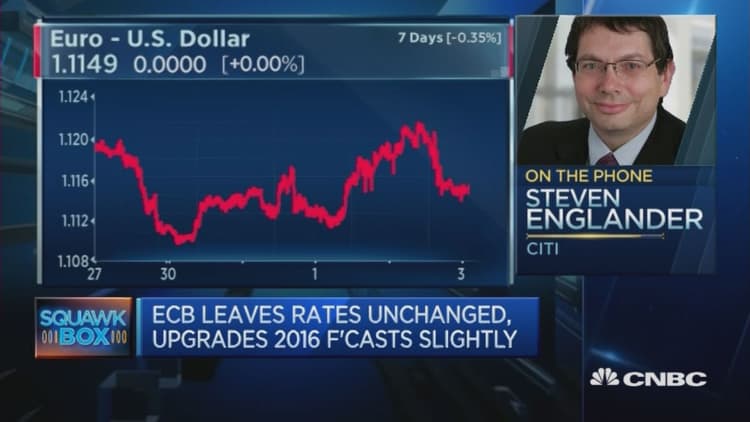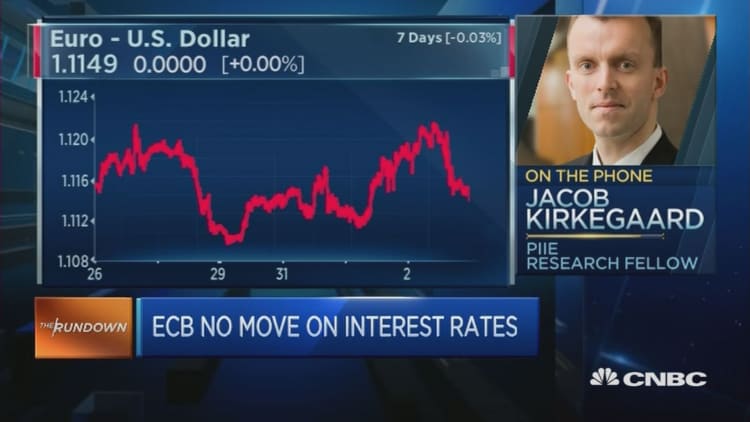

The euro zone's two biggest economies, France and Germany, have seen their growth outlook revised by their respective central banks as meaningful growth remains elusive for the region.
Germany's Bundesbank on Friday revised down its growth forecasts for this year to 1.7 percent, down from its earlier forecast of 1.8 percent. The German central bank also revised growth rates for 2017 and 2018 to 1.4 percent and 1.6 percent respectively. This followed a decision by the Banque de France (Bank of France) to cut its growth forecast for the French economy for 2017 to 1.5 percent, down from 1.6 percent. However, it kept its 2016 outlook unchanged at 1.5 percent
Economists at the Bundesbank have attributed the revision of forecasts to low inflation in the first half of 2016 and to the continued volatility in crude oil prices.
"Fluctuations in the price of crude oil continue to present a risk, particularly for the price projection, but on the whole appear balanced, as do the risks to economic growth, Bundesbank President Jens Weidmann said in a press note.
Inflation is a big concern, not just for Germany but for the entire region which is struggling to meet the European Central Bank's target of 2 percent. Germany's consumer price index edged up by 0.1 percent in May after falling by 0.1 percent in April, marking an exit from deflation. The central bank in its latest outlook has cut its inflation projection for 2016 to 0.2 percent from 1.1 percent, while the 2017 forecast has been lowered from 2 percent to 1.5 percent.
France, meanwhile, is in the same boat after the Bank of France, the country's central bank, said inflation would rise only by 0.2 percent this year before picking up to 1.1 percent in 2017 and 1.4 percent in 2018.
The French annual inflation rate slipped 0.1 percent in May, due to a sharp fall in prices for energy and a decrease in prices of manufactured products.
The figures come a day after the ECB increased its forecasts for growth and inflation. In a press conference in Vienna on Thursday, European Central Bank President Mario Draghi forecast a growth of 1.6 percent for 2016, up from 1.4 percent forecast in March. It however, it left its growth forecast for 2017 unchanged and trimmed its forecast for 2018 to 1.8 percent. Draghi also warned that while the risks to the euro area's growth outlook had decreased, they still remained on the downside.
Global uncertainties and plunging commodity prices have added further pressure on the euro zone economies even though the ECB continues to inject massive amounts of stimulus to bring the economies out of the woods. But the region still continue to struggle.



